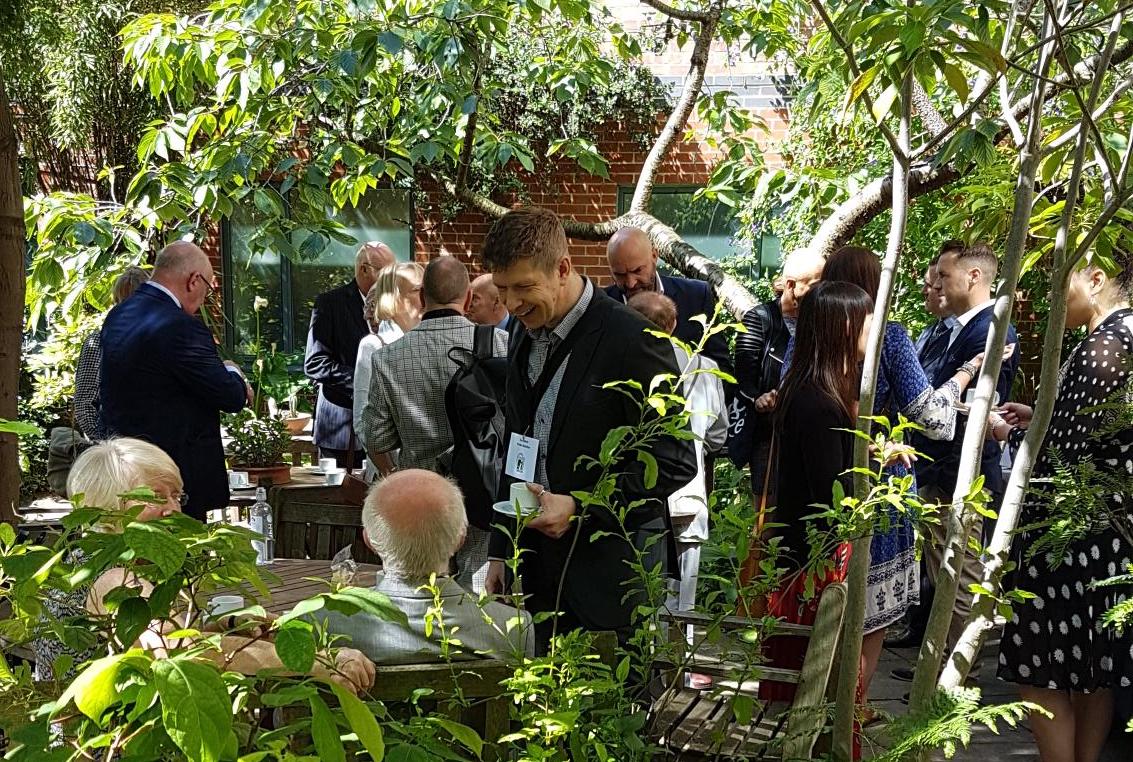Marking the occasion at London’s Museum of Brands on 27 June, the Health Food Institute (HFI) has celebrated four decades of ‘recognizing and rewarding excellence’ in health food retailing.
The HFI’s annual luncheon and lecture took on an adapted format for 2019, with networking in the museum’s gardens and a lecture by Dr Michael Dixon (pictured), before a vegetarian buffet and 40th anniversary speech delivered by Tom Moses, council member, who highlighted some memorable moments throughout the institute’s history.

During his lecture, Dixon, chair of the College of Medicine and advisor to Prince Charles, commended the ‘crucially important’ work of the HFI and declared the need for a ‘new paradigm’ where the NHS is concerned. The system of social prescribing – whereby health professionals refer patients for wellbeing support in the community, via link workers who take non-medical action – directly affects health food retailers, he explained, who are in a position to act as both prescribers and as an end point for patients.
Dixon expanded on some of the activities covered by the scheme – herbal walks, health store tours, complementary therapies and Ayurveda – and explained that more than just ‘de-medicalizing’ the country, the system personalizes healthcare, addresses inequality and increases the potential for a health-creating community. In his words, the ‘trojan horse of change’ would come from increased link workers per primary care network, resulting in the end of ‘fruitless conversations’ among GPs who previously wished to effect change but struggled to do so under the current model.
Social prescribing is here to stay. Once you start emancipating patients to think differently there’s no going back
Responding to questions from Graham Keen, executive director of the Health Foods Manufacturers’ Association, Dixon declared that social prescribing is ‘in the fabric NHS England now’, with nationwide implementation planned for 1 July, and link workers set in post from September. “Social prescribing is here to stay. Once you start emancipating patients … to think differently, I think … there’s no going back,” Dixon states, adding that he’s witnessed a ‘reverse flow’ in the relationship between GPs and patients.
By visiting the National Association of Link Workers, Dixon said health stores could become actively involved, build strong relationships and ‘join up the dots’, to increase signposts towards stores.
After a brief Q&A, Institute Fellowships were then presented to: Rachel Symonds, Target Publishing; Phil Costigan, IHTA; Emma Ellis, BioCare; Stephen Desborough, Food for Thought; John Fletcher, Viridian Nutrition; Carol Dunning, Diversified Communications; Al Overton, Planet Organic; and Dale Pinnock, Formidable Digital.
The annual awards ensued, with the Teddie Marston Award going to Alice Higgins, Down the Earth in Dorchester, and the Better Retailing Secret Shopper Award being presented to Len Glenville and Melanie Beard from Best Health Food Shop in Tunbridge Wells. Sophie Redman from Wild Oats, Bristol, received the HFMA/Roger Lane Scholarship Award, while Lisa Gawthorne of Bravura Foods was the recipient of the James Henry Cook Award. The Jimmy Lee Richardson Diploma Award went to Amanda Davies of Evergreen and the Ian Martin Student of the Year winner was Suzanne Swallow from Wholesome Bee in Settle.
The lecture was rounded off by a presentation from Pinnock who, under his aforementioned digital marketing agency, has redeveloped the HFI’s website (launching soon) upgrading its usability – particularly on mobile phones – with more calls to actions, less scrolling, optimized SEO and a quicker, more efficient layout which enables staff to work on diploma modules behind the counter during quiet times.





